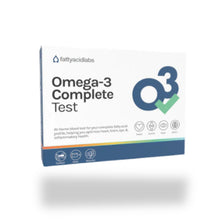
Health Benefits of Omega-3 Fatty Acids During Pregnancy
Omega-3 fatty acids are a type of healthy fat that is essential for good health. They are especially important during pregnancy, as they play a critical role in the growth and development of the fetus. Here are some of the many health benefits of Omega-3 fatty acids for pregnant women, as well as practical advice on how to include them in your diet.
1. Reduces the risk of premature birth
Premature birth is a leading cause of infant mortality and long-term disability globally. Studies have shown that supplementing with Omega-3 fatty acids during pregnancy can reduce the risk of preterm birth. A recent meta-analysis of 70 studies involving over 19,000 women found that Omega-3 supplementation reduced the risk of preterm birth by 11% and early preterm birth by 42%. The effect was particularly pronounced in women with low Omega-3 intake before pregnancy.
2. Improves fetal brain and eye development
Omega-3 fatty acids are important for the development of the fetus's brain and eyes. They are especially important during the third trimester, when the brain is undergoing rapid growth. Studies have shown that mothers who consume high levels of Omega-3 during pregnancy have children with better cognitive and visual development compared to those who do not. DHA, a specific type of Omega-3 fatty acid, is especially important for brain and eye development and is found in high levels in fatty fish such as salmon and sardines.
3. Reduces the risk of postpartum depression
Postpartum depression is a common and serious mental health condition that affects many new mothers. Studies have shown that Omega-3 supplements during pregnancy can reduce the risk of postpartum depression. In a randomized controlled trial of over 3,000 women, researchers found that those who took Omega-3 supplements during pregnancy had a lower risk of postpartum depression compared to those who took a placebo. The effect was particularly pronounced in women with a history of depression.
4. Reduces inflammation
Inflammation is a natural response of the body to injury or infection. However, chronic inflammation has been linked to a number of health problems, including heart disease, diabetes, and cancer. Omega-3 fatty acids have anti-inflammatory properties that can help reduce inflammation in the body. This is especially relevant during pregnancy, as chronic inflammation has been linked to pregnancy complications such as preeclampsia and premature birth.
Summary
Omega-3 fatty acids offer many health benefits for pregnant women and their growing fetuses. From reducing the risk of premature birth to improving cognitive and visual development, Omega-3s play a crucial role in a healthy pregnancy and a strong baby. By including Omega-3-rich foods in their diet, pregnant women can optimize their own health and the health of their baby.






